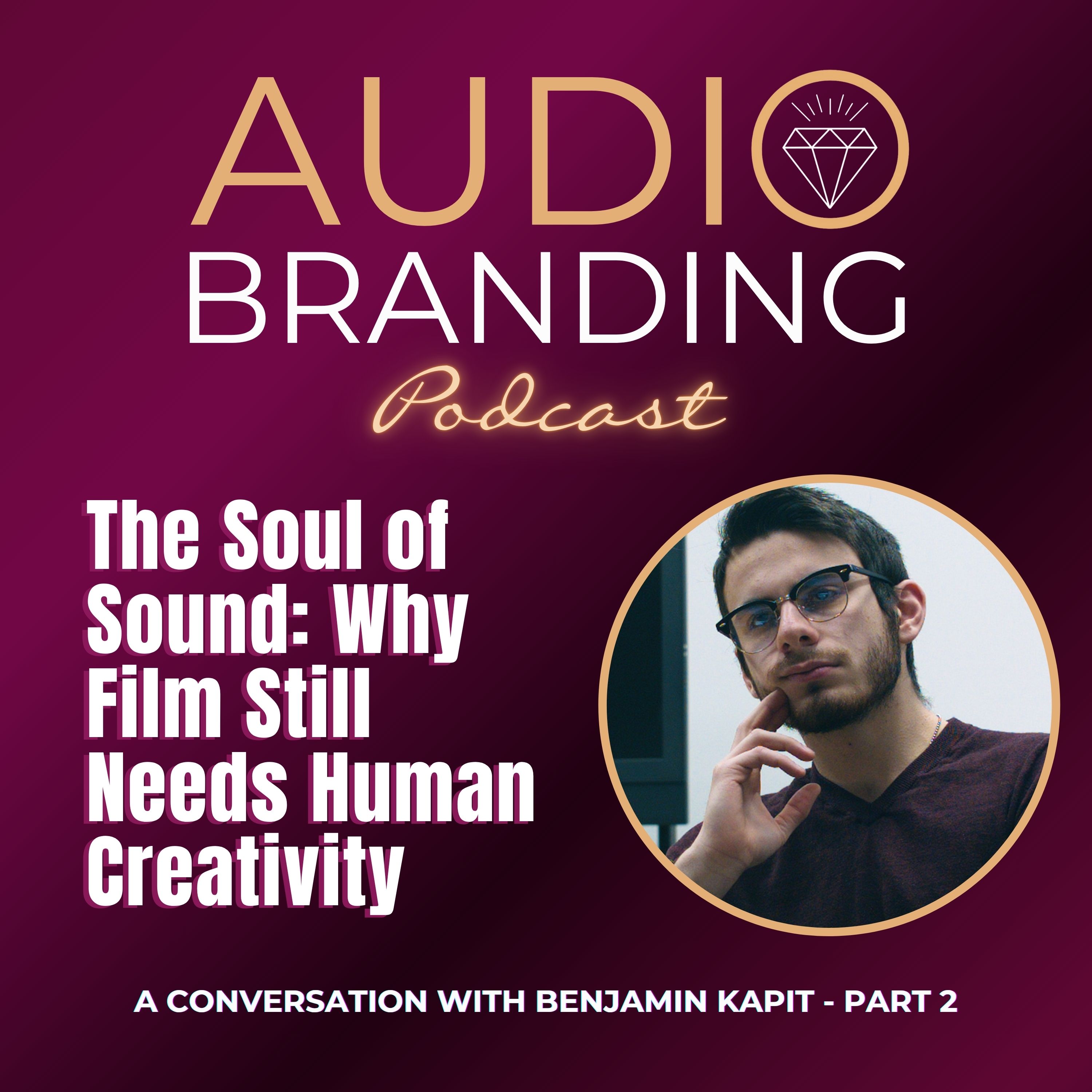Podcast Episode Details
Back to Podcast Episodes
The Soul of Sound: Why Film Still Needs Human Creativity: A Conversation with Benjamin Kapit - Part 2
Season 1 Episode 302
“There’s a quote from a famously terrible person, Thomas Jefferson, who said – I don’t particularly like him or a lot of the things he did, but I do agree with this, I do agree with this specific quote. ‘I will study war and strategy so that my children may study science and maths, so that their children may study art and poetry.’ I’m sure I’m butchering the exact quote, but the sentiment is there. Why are we creating robots to do art for us? Why do we not yet have something that can fold my laundry? Wouldn’t that be useful? That’s what I want. And at the end of the day, if I had to pick either having a robot to do my art for me so that I have time to fold my laundry, or having to do both, I’d rather do both. I’m fine living. I enjoy being alive and being a human. I don’t need a robot to take away what, to me, is the most human thing about us, which is that we can create.” – Benjamin Kapit
This episode is the second half of my conversation with Benjamin Kapit of Second World Entertainment as he shares some of the more obscure sounds that he’s turned into cinematic effects, discusses the ethics of AI training and what it gets right and wrong about human creativity, and the message he’d most like to share with future generations about the power of sound.
As always, if you have questions for my guest, you’re welcome to reach out through the links in the show notes. If you have questions for me, visit audiobrandingpodcast.com, where you’ll find a lot of ways to get in touch. Plus, subscribing to the newsletter will let you know when the new podcasts are available, along with other interesting bits of audio-related news. And if you’re getting some value from listening, the best ways to show your support are to share this podcast with a friend and leave an honest review. Both those things really help, and I’d love to feature your review on future podcasts. You can leave one either in written or in voice format from the podcast’s main page. I would so appreciate that.
(0:00:00) - Exploring Sound in Film Production
As our discussion begins, Benjamin shares more of his hands-on experience with audio production, from the studio apps and audio plugins he prefers to the challenge of bringing it all together in the film’s final cut. “You have to record sound and work with the sound props make,” he says, “the way that people talk, or rather who’s mic’d up in certain shots. You have to work with the edit. You have to have that somehow in your mind because you, the director, are the only one who really knows what it’s going to look like when it’s done.” He tells us about some of his more inventive sound sources, such as a microphone specifically tuned to record static. “When it comes to post-production,” Benjamin says, “especially sound,” I hate rules. I don’t want to do things the way that everyone else does. I don’t want to sit down and say, okay, well, this sound sounds like this, so it has to be this thing.”
(0:11:06) - Exploring AI in the Sound Industry
Benjamin and I talk about the groundbreaking audio work in sci-fi movies like Dune and Interstellar, and how they’ve inspired his approach to sound design. “It never really occurred to me that, like, oh, you can just mess with a synth or with a sound so much that it becomes something else,” he says about Interstellar’s distinctive soundscape. “You can completely shift the tone and the meaning behind audio and make it yours and make people think, yeah, this is this other thing and it’s not.” Our conversation turns to AI’s transformative role in the industry, and his concern that the distinction between different forms of AI, and the question of whether any of th
Published on 14 hours ago